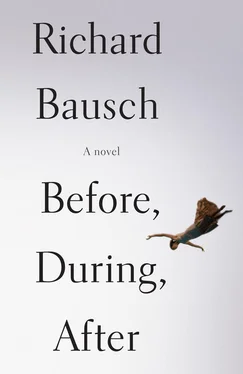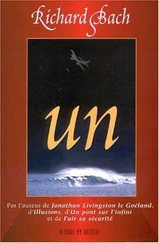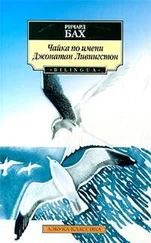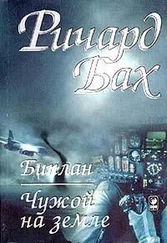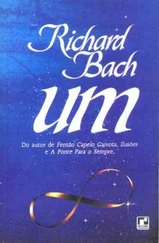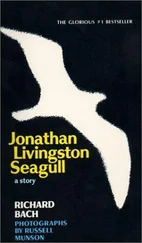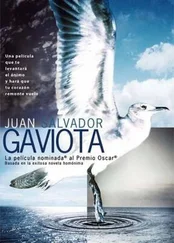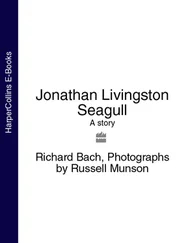Natasha turned to look out at the waves coming toward her, and thought of Faulk. There was so much happiness to come, and now she made an effort not to allow it into her thoughts — as if to anticipate the fond future might render it precarious: her new life in Tennessee and her journey back to Europe in the spring. She saw herself painting in a sunlit room with the lovely countryside of Provence out the window and Michael Faulk somewhere close by, writing perhaps. Imagining this scene, she experienced suddenly a dark shift inside. She dipped her hands in the water and moved them back and forth, watching the swirls, concentrating on the traces running from the ends of her fingers. She saw the gulls gliding low across the iridescent surface and inwardly searched for the contentment she had just been feeling so strongly. Of course this propensity for the flow of her thoughts to shade into darkness was not new, and she had learned to accept it. But with Faulk she had come to believe she could grow out of it at last — that it would fade, becoming only an aspect of past life.
She had never known anything like this passion, and today’s crossing shadow was only that he was so far away. With the thousands of miles between them, it was natural to fear that the world might take him from her.
Though the unease she felt, missing him, brought on other worries.
His experience of the world was indeed unlike her own, and occasionally his seriousness about religion concerned her. The way his eyes glittered as he uttered the phrases of his faith. His fervor sometimes produced in her an irksome displeasure, which she had labored to stifle. Occasionally, she had made light of it, teasing him with the intent of bringing him back to earth about sounding too priestly.
At times her teasing was received in a less-than-lighthearted manner. “There’s stuff I’d rather not ponder,” he said. “Or be too conscious of. Thoughts that lead nowhere and only end in pain.”
“So you don’t question?” she asked him.
“I don’t expect an answer to the questions. So I try not to ask them.”
“And you’ve succeeded in that?”
“Failure,” he said with that sidelong smile, “is rampant where I live.”
How he fascinated her! She was sure now that she had never been in love before, had never even gotten near it. And there was something else, too: in the last few days, watching Constance conduct business over the phone with contractors about the design of the Maine house, she had begun to receive intimations about how much she, Natasha, had let the job in Washington take over her life. She had accepted the position merely to make enough money to spend a year in France painting, and the very effort to make possible the hoped-for journey had somehow diluted the hope itself. Constance’s focus was that house. She was continually rethinking everything about it, wanting the design to be in keeping with new ideas she had about the efficient use of energy and the least possible impact on the wildlife in the vicinity. It was her passion; it gave her definition and purpose.
Natasha stood in the cold water of the beach and thought about her own lack of some central resolve. She had dreamed of putting together a real body of work, a portfolio of paintings and drawings, too, and when actually painting she had always felt so fresh and glad. Yet she had let anything and everything, including her own wandering in the world, take precedence. And perhaps this had to do with her particular beginnings. After all, her earliest memories were of crisis, near and loving presences inexplicably taken away, first into distance and then into the limitless far quiet of the sky — something gravely wrong and her grandmother crying in the nights. Teachers had told her she was talented. Friends had marveled at what she could bring about with the stroke of a brush, and she had wasted so much time, so much of her young life chasing after some nameless inkling of happiness, as if she might come to a place, a physical somewhere else , where she would find whatever it was she had always missed, the right combination of nourishment for her soul, a sense of completion, and, at long last — she could admit it to herself now — relief. Solace.
Here, on this beach in Jamaica, remembering her plans with Faulk, she felt that very thing, that sighing release of the long pressure, and she murmured “My darling,” as though he were standing at her side. She looked at the shimmering horizon with its small white triangle of a single sailboat crossing.
Constance called to her from the beach. “Let’s go eat.”
Walking up to the resort, they saw Ratzi standing in the entrance. Natasha greeted him with a little wave and then, seeing the strange look on his face, paused and waited for him to speak.
He walked up to her and took her by the arms. She thought something had happened to Iris. But then he turned to Constance, and now she thought of Constance’s daughter. Ratzi stood back, almost bowing, wringing his small white hands. “Awful.” His voice was shaky. “I’m so sorry. It’s terrible. Terrible. You must come.” He went along the walk, and they followed, hurrying. Now Natasha thought that something must have happened to Maria Ratzibungen.
They entered the lobby, with its slowly turning ceiling fan and its plush chairs and benches and all the shapes of civilized enjoyment and recreation, the paintings and the statuary and the lush green plants, leaves the size of capes, several of which now screened some of the people — an alarming number of people — gathered there. The television was on. Natasha heard the voice of a newswoman say the phrase “minutes past the hour.” On the screen was a wide panorama of New York with smoke rising from it, a video taken from a distance, probably from a traffic helicopter. It did not quite register in her consciousness. It was something bad in the city. News. In the twelve days she had been here, she had not seen anyone watching this TV, which was hung from black wires on the side wall; only a few of the rooms had TVs in them. Now everyone crowded nearer the screen, and through the gathered others, Natasha saw the Twin Towers capped by the churning clouds of smoke. A little frame inside the larger picture showed the second plane cruising into its own shocking ball of flame.
“My God,” Constance said.
“What happened?” said Natasha, feeling the helpless absurdity of the question. Then, under her breath: “Michael’s there.” No one spoke. They were all staring at the screen. The images were like elements of an awful dream, one that played out impersonally, “witness dreams,” Natasha had always called them, where she saw things in the distance, as if she had just happened upon them in some series of events unwinding in general unconsciousness, a property of night, set to prey on anyone sleeping at that hour. On the television with its pixels and little strands of failed light, doubtless from a cameraman in a helicopter, she saw what she came to realize was a man and a woman standing in the open side of one of the buildings. They were holding hands; you could see that they were holding hands, flames licking up the widely spaced vertical steel ribs on either side of them. They seemed to falter, and then they leaped, and let go of each other, separating and disappearing into the smoke.
Everyone in the lobby of the hotel in far-off Jamaica screamed.
The newswoman went on talking, speaking carefully, slowly, in clipped phrases, inflectionless, concentrating on the smallest details, as a person might think of measurements and minutiae in order to preserve some hold on sanity. And now the camera caught another body hurtling down, that of a man, his suit jacket open to a white shirt and tie. The female newscaster tried to report it. “My God, are you seeing this,” she got out in a tearful voice. A video cameraman from a helicopter hovering near one of the openings made by the planes focused on a woman in light orange slacks and a dark blue blouse standing in the ruin and smoke. She actually appeared calm, so small there in the wide gash with all the destruction behind and around her. She lifted her hand and waved. That simple, forlorn, graceful motion looked almost like a greeting. The mind wouldn’t accept what it really was. She clung to the shattered place at the edge of the opening, leaning out slightly, and then turning, facing into the rubble edge of the wall. When smoke or steam began to come from her whole body, the image abruptly shifted, the cameraman evidently having turned the camera away from what was coming.
Читать дальше
